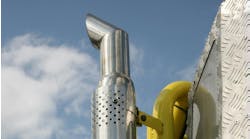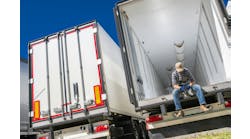While at a recent Mertior Wabco Vehicle Control Systems event in Michigan, the matter of truck safety was discussed.
In his presentation, Alan Korn, Meritor Wabco’s director of advanced brake systems integration, touched upon commercial vehicle safety and provided some large truck crash statistics, compiled from the most recent data collected in 2009.
Among the highlights:
- 286,000 large truck police reported crashes.
- 2,987 fatal crashes; 3,380 fatalities. 73 percent of these involved combination vehicles.
By way of reference, there were 26,945 passenger car fatal crashes in 2009.
- 51,000 injury crashes; 74,000 injuries. 57 percent of these crashes involved combination vehicles.
- Fatalities per 100 million miles traveled: 1.17. That is a 54 percent decrease from 2000.
- Alcohol was involved in 2.9 percent of large truck fatal crashes.
By comparison, alcohol was involved in 27.1 percent of passenger car fatal crashes.
- In 2010, heavy truck crash fatalities increased by 8.7 percent to 3,675 - the first increase since 2005.
Passenger car fatalities dropped by 4.2 percent in 2010.




